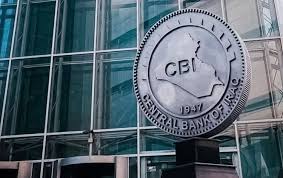In recent years, Iraq has seen a rapid expansion of its banking and payment sector, with more and more people opening bank accounts and using digital payment methods. This trend has been fueled by the growing number of banks establishing branches and installing ATMs, as well as businesses installing point-of-sale (POS) terminals to accept card and QR payments. This increase in financial inclusion has helped to modernize Iraq’s payment landscape, with the banking and finance industry now accounting for more than 23% of the country’s GDP.
One measure of this growth is the availability of over 1,700 ATMs in Iraq – roughly 3 per 100,000 inhabitants. While this number may seem small compared to the regional average of 32.7 ATMs per 100,000 people in the South West Asia and North Africa (SWANA) region, it represents a significant increase in financial access for Iraqis. There are currently 55 banks operating in Iraq, including 7 state banks, 48 private banks, 23 commercial banks, 8 Islamic banks, and 17 foreign banks. These banks have a total of 515 branches across the country, with four of them also having overseas branches.
Another notable development in Iraq’s banking and payment sector is the increasing use of mobile money and eWallets. To date, more than 3.5 million people have opened mobile money accounts with providers like NassWallet, ZainCash, and AsiaPay (formerly known as AsiaHawala). Iraq also has five third-party processors (TTPs) that enable and route payments between cards, payment gateways, and card scheme companies like Visa and Mastercard. These TTPs include Iraqi gate, APS, MEPS IRAQ, YBS, and National gate.
Challenges
Despite these positive trends, there are still challenges to be addressed in the sector. For instance, state-owned banks control the majority of deposits in the country, with 100% of public sector deposits and 63% of private sector deposits being held by these banks. This has led to a situation where government offices often do not deposit their funds in private banks, even when the central bank encourages them to do so. Additionally, the majority of small and medium-sized enterprises (SMEs) in Iraq do not have access to banking services or use banks for their investments, which has contributed to the country having the lowest SME contribution to financial inclusion among the SWANA region.
The Central Bank of Iraq is playing a key role in addressing these challenges and improving the banking and payment sector. Iraqis have also been increasingly adopting digital payments, with the national switch of the central bank connecting more and more banks, ATMs, and eWallet participants to create a seamless payment ecosystem between financial institutions. With over 20 million active internet users in Iraq who own smartphones and are familiar with technology, there is great potential to create a better payment culture in the country. The banking and financial industry also offers opportunities for new businesses to enter the market and compete for clients by offering added value services.
One of the key ways in which the central bank is working to improve the banking and payment sector is by promoting financial inclusion. This involves making it easier for individuals and businesses to access financial services, particularly in underserved areas. The central bank has implemented a number of initiatives to achieve this goal, including the introduction of new regulations and the development of new financial products and services.
One such initiative is the establishment of the Financial Inclusion Support Unit (FISU), which aims to increase the availability and usage of financial products and services, particularly among underserved segments of the population. The FISU works with banks and other financial institutions to identify and address the barriers that prevent individuals and businesses from accessing financial services.
While the growth of Iraq’s banking and payment sector in recent years has been impressive, there is still work to be done to ensure that all Iraqis have access to financial services and to further develop the country’s payment infrastructure. By addressing the challenges that remain and building on the progress that has been made so far, Iraq can continue to make strides towards a more inclusive and developed financial system.
This article is brought to you in collaboration with Iraqi Innovators. Wedo is your one-stop destination for educational services and strategic business consulting in Iraq & beyond. From comprehensive training programs to expert guidance on investment readiness preparation and board establishment.


